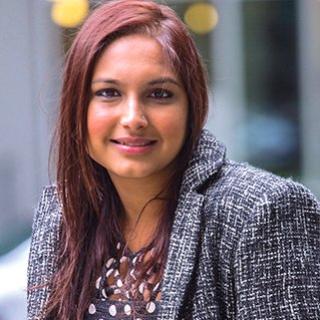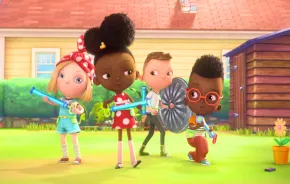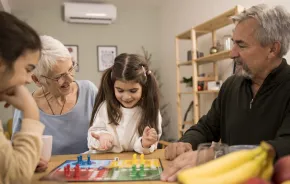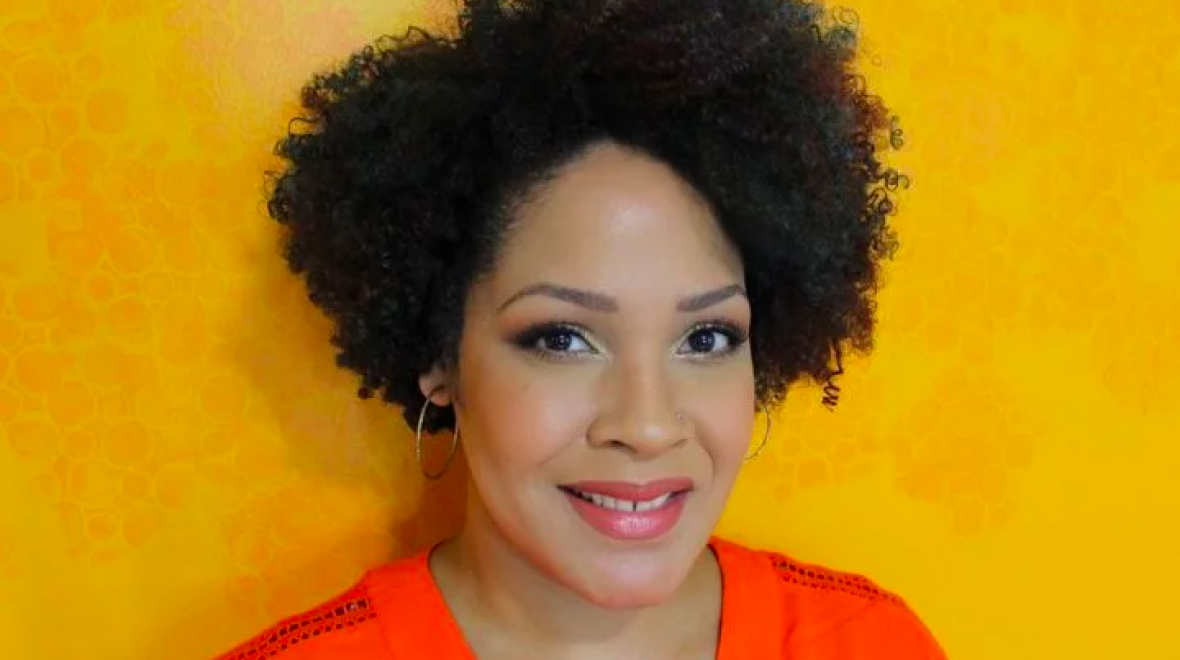
Photo:
Ijeoma Oluo's new book, "So You Want to Talk About Race," is available now. Photo courtesy of Ijeoma Oluo
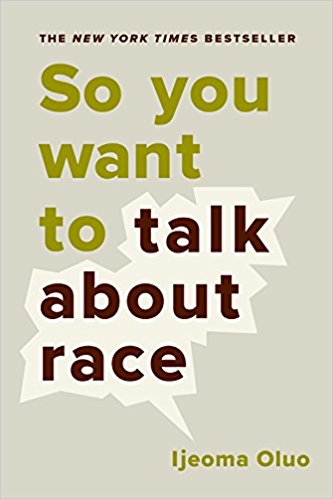 I’ll never forget the first time I learned that my friends may not want to play with me because of the color of my skin.
I’ll never forget the first time I learned that my friends may not want to play with me because of the color of my skin.
It was the eve of my ninth birthday party, and my friend Jessica called me in tears: “My mom said I can’t come to your birthday party tomorrow because you’re Indian.”
I was mortified and hurt at the same time. I felt shame in its full form. I accepted the explanation as reasonable, didn’t really tell my mom as I didn’t want to make a fuss and my birthday party proceeded as planned — minus Jessica.
Decades later, I still feel shame and pain, but it’s now accompanied by the anger of knowing that there are millions of children out there like Jessica who are told they are superior to an entire other race, or races. Also, that there might be millions of people like me who, since the age of 9, has questioned her value and worth on a regular basis.
I’m often asked to talk about race in the work I do on gender equity, and it’s extremely challenging. I’ve usually deflected from fully engaging on it, until I recently read Ijeoma Oluo’s seminal book “So You Want to Talk About Race.”
My concerns about race have intensified for me as a new(ish) parent of a toddler. I want to know how to talk about race with him, knowing it will bleed into every aspect of his life — how he will be treated at school, the expectations of being a model minority South Asian child and, in its worst forms, when he will be “randomly” selected at airports or called a terrorist.
As Oluo writes in the book: “As a parent of a child of color, you try to shield your kids from the harsh realities of the world when you can, while preparing them for the ugliness that they don’t have the privilege of being kept safe from.”
Oluo’s book feels like a homecoming to people of color who finally have words to describe those tricky, uncomfortable feelings, and ways to drive conversations around this with their white peers. There’s an immense burden that people of color carry to be seen as human, equal and deserving, as we remain cocooned by a society that claims to be inclusive and “colorblind.”
Without exaggeration, I think everybody should read the book. But if there’s one group I wish that would immediately read the book and be better equipped to have meaningful conversations around race, it’s white parents.
Below, Oluo and I discuss why her book, and talking about systemic oppression in general, is crucial for Seattle parents.
Why would you encourage parents in Seattle to read your book?
I really hope parents read my book and look for themselves in it. A lot of times in Seattle, people read books about hard subjects and think it’s about "those poor people there," without understanding how much it happens here.
I wrote my book as a black woman raised in Seattle. I urge white parents to find themselves in these stories and reflect upon where they have acted similarly, and made assumptions about other families based on race.
Much of what I wrote about is very much a liberal white Seattle problem. Every hard truth in that book was written out by a woman who grew up here. Silent white supremacy is very Seattle.
Could you give me an example?
Recently, I had a weird conversation with my 10-year-old son’s teacher.
We were all sent the school’s dress code that said “no hoodies.” When the class started asking my son’s teacher about why they weren’t allowed to wear hoodies — this is Seattle after all — she just pulled off the top of her head that hoodies meant gang affiliation.
As the only black kid in class, my son was very upset to hear this explanation. He spent the rest of the day writing out all of the reasons one would wear a hoodie that had nothing to do with gangs.
The teacher completely didn’t realize how the concept of “gang affiliation” would impact the only black kid in the class. She meant well and my son is in an advanced program at a social-justice focused school. But it was a painful conversation to have with her on what’s fundamentally wrong with linking hoodies to gang affiliation [and how other kids in his class may perceive this idea]. These sorts of incidents happen all the time, all over Seattle.
What do you wish more white parents knew about raising multicultural families in Seattle?
We were living on the Eastside for a while and I found it to be a very toxic environment for my family. Not only because of the lack of blackness, but also because of the lack of economic diversity that we encountered. It was particularly very difficult for my mixed-race son whose dad is a sanitation worker. It is so difficult to be in areas where no one’s poor. He was even called the “n-word” one day walking down the hall, despite being incredibly light-skinned.
For parents of color, we keep having to juggle between finding environments where our kids can progress, but also find areas where they will feel included. We know the state doesn’t invest equitably in education.
Now we’re settled in Shoreline, which is much more mixed and economically diverse.
I wish more white parents would understand how parents of color have to work extra hard to find places where their kids don’t fall apart but also get a good education. The fact that in majority black areas schools don’t get funding, that breaks my heart.
I’m guilty of the privilege that comes with being Asian and being categorized as a “highly skilled immigrant.” How can other parents of color like me support black rights?
First, take a look at the way anti-blackness is perpetrated throughout society. It often stands on its own. People often say Seattle is diverse –– what they mean is they see a lot of Asians. You can definitely see some minority populations are doing well economically and socially.
But then when we look at the bamboo ceiling; we know there’s a false sense of security, but we also know there’s a definite limit on successes of people of color. We see so many immigrants stalled in their lives being told "there’s no leadership potential here."
I’d like to see more parents of color understand and own how white supremacy hurts everyone. For example, the Pacific Northwest has had a complete erasure and exclusion of indigenous populations.
When they move here, a lot of people of color are told there are no problems. But they keep realizing over time that actually, there’s a lot wrong in Seattle for people of color. The models of white supremacy here don’t mirror what we see in, for example, the South. But we see this in the emotional impact it has on families of color and the opportunity gaps between the races in this society. We have one of largest opportunity gaps in our schools in nation, by race.
Okay, the tough question: How do you speak to kids to racism?
I often hear from white parents that they don’t have to talk about police brutality with their kids like black parents do. But they do!
We oftentimes forget that we must talk to kids about their community, even if they won’t be directly impacted by harm to it.
As parents, you can’t think you can’t have these [tough] conversations about race when your children are growing up and then expect them to reach adulthood with full empathy for the experiences of others.
Kids are going to see race, police brutality — all of it, one way or another. I would tell white parents that it can be empowering to talk to kids about this now and equip them [to counter it].
I’ll talk about issues of bigotry that don’t directly affect my kids with them, for example, on Islamophobia and immigration. So when they had classmates who were undocumented, they could understand the situation fully.
What about when our kids feel bad about these hard truths?
Kids see us perpetrating these systems. Explain to kids: I know you feel bad, here’s what you can do... Even if your classmates are not saying anything against [racist ideas] here’s how you can stand up for your friends.
Most importantly, get your kids used to a world where equality is the norm. Start at kindergarten. Start empowering kids now, so when they become adults, this is their world.
No parents should back away from these conversations. If there’s an issue, like police brutality that terrifies my kids, it should, at the very least, concern yours.
Have you ever had to explain why white people can’t say the "n-word"?
I have. I’ve tried to get white kids to understand the trauma tied to that word. Some of the success I’ve had is by explaining how the word has been used in history. Then I ask, ‘Is it worth it that you would evoke harm on to your friend?’
Even when I’m told it’s unfair — that people should be able to say anything — I point to the historic and ongoing trauma against people of color. When we get to a place where there isn’t ongoing trauma against people of color, when all words carry the same weight, then you can use any word.
[Author’s note: This is as important for kids to learn as their parents!]
What’s at risk for white kids if we don’t address systemic racism now?
I liken this to going to see movies about slavery with white people. White people start thinking of themselves as the savior. They see doing right as "goodwill," not basic humanity.
When you raise kids with no actual context of people of color, if you have never let them be uncomfortable and have to make the adjustments that come with being around kids from different backgrounds, then you’re basically watching this film. Kids of color, by the way, have always been taught about racism; they have no choice but to adjust and be aware because their survival depends on it.
So you are doing your kids a disservice if they have no interaction from people who are different than them, as they will not understand basic principles of compromise.
Any tips on what white parents can do to be more understanding of multicultural families?
I get nervous when my son gets invited to a friend’s house and the parents don’t ask to meet me first. Kids don’t think to mention that their friend is black, so I will be driving to drop off my son and their friend’s parent looks very shocked.
So I’d like white parents to stop assuming every kid coming to their house is white.
Of course, parents need to be talking to their kids that kids of different races exist. I can tell if my son will be the only black child at a party, and it’s hard on him. I encourage parents to try to invite more than just one black or one Asian friend. Not doing so actually puts extra pressure on the kids of color who are there.
Lastly, treat parents of color with respect. Ask about dietary restrictions, for example. Many people don’t realize that many black kids are lactose-intolerant.
By the way, I think kids see race immediately, and research shows they do by [age 5]. But until it’s been given context, they don’t really comprehend it. This is why parents’ framing conversations about race becomes so necessary.




